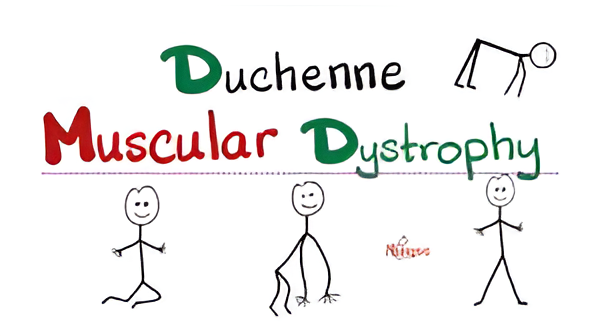When a child is diagnosed with a life-altering condition like Duchenne Muscular Dystrophy, everything changes—for the child, the parents, and the entire family. This rare genetic disorder not only affects the physical capabilities of those who have it but also challenges the emotional, psychological, and social dynamics within a family. Yet, despite these hardships, many families find unexpected strength, love, and resilience as they navigate life with this complex condition.
Understanding the Diagnosis: The Beginning of a New Chapter
The journey often begins with subtle signs—frequent falls, delayed milestones, or muscle weakness. For many parents, the diagnosis of Duchenne Muscular Dystrophy is both a shock and a turning point. Suddenly, the future they envisioned for their child shifts, and a new path filled with uncertainty emerges.
-
Early symptoms usually appear between the ages 2 and 5.
-
It primarily affects boys and progresses rapidly.
-
Caused by mutations in the dystrophin gene, leading to muscle degeneration.
Nevertheless, early diagnosis opens the door to timely interventions and support, which can make a significant difference in quality of life.
Adjusting to the New Normal: Day-to-Day Life
Adapting to the realities of Duchenne Muscular Dystrophy requires not only physical adjustments but emotional and mental recalibration. Simple routines, such as getting dressed, climbing stairs, or participating in school activities, become complex and often require assistance.
To better manage day-to-day life, families often:
-
Modify their homes to be more accessible.
-
Establish consistent therapy routines.
-
Communicate closely with teachers and caregivers.
-
Advocate for inclusive educational settings.
Although the adjustment period can be overwhelming, it also becomes a time of learning and growth. Parents become experts in their child’s care, and siblings often develop a deeper sense of empathy and responsibility.
Building a Circle of Support: From Isolation to Inclusion
Initially, many families feel isolated following the diagnosis. Friends may not understand the challenges, and extended family might struggle to offer the right kind of help. But gradually, families affected by Duchenne Muscular Dystrophy often find comfort and strength in the community.
Support groups, both online and in-person, provide a space to share stories, exchange practical advice, and simply connect with others who “get it.” This sense of belonging is essential, particularly during difficult transitions, such as when a child begins using a wheelchair.
Moreover, schools and workplaces can become more inclusive when families actively communicate their needs and advocate for accommodations. This turns isolation into inclusion—one conversation at a time.
Celebrating Milestones: Redefining Success
While Duchenne Muscular Dystrophy brings undeniable challenges, it also reshapes the way families measure progress and success. Traditional milestones may take longer to reach—or they may look completely different—but they become all the more meaningful.
-
A child is independently using a new piece of adaptive equipment.
-
Siblings are learning how to help and support.
-
Attending a school event or a family outing together.
Each of these accomplishments, big or small, becomes a celebration. They serve as reminders that life, even with its hurdles, is still full of joy and meaning.
Coping with Emotional Highs and Lows: A Rollercoaster Ride
The emotional journey of living with Duchenne Muscular Dystrophy can be likened to a rollercoaster. Families experience moments of hope and triumph, but also periods of grief, frustration, and fatigue. It’s important to recognize and validate these emotions.
Key coping strategies include:
-
Regular counseling or family therapy.
-
Mindfulness and stress reduction practices.
-
Open communication between family members.
-
Taking time for personal self-care, even briefly.
While the journey is undoubtedly hard, it is also deeply human. Families often discover that vulnerability leads to connection and that sharing emotions fosters strength.
Medical Management and Hope for the Future
Thanks to ongoing research and innovation, the medical outlook for individuals with Duchenne Muscular Dystrophy continues to evolve. New treatments and supportive care strategies are helping children live longer, more fulfilling lives.
Regular visits with a multidisciplinary care team—including neurologists, cardiologists, physical therapists, and respiratory specialists—are vital. Medications can help slow the progression of muscle damage, while physical therapy maintains mobility and function.
Even more promising are the advances in gene therapy and clinical trials. Although there is currently no cure, the future holds hope. These breakthroughs offer families a renewed sense of possibility, reinforcing their resilience and optimism.
The Sibling Experience: Growing Together Through Adversity
Siblings of children with Duchenne Muscular Dystrophy often take on unique roles in the family. From assisting with physical care to offering emotional support, their journey is equally profound.
At the same time, they may grapple with feelings of jealousy, guilt, or sadness. Therefore, it’s crucial to ensure siblings receive their support and validation.
Encouraging open dialogue, setting aside one-on-one time, and involving them in advocacy efforts can create balance and promote mutual understanding within the family.
Looking Beyond the Diagnosis: Rediscovering Purpose
While Duchenne Muscular Dystrophy certainly redefines life in many ways, it does not limit a family’s capacity for love, laughter, and purpose. Many families go on to advocate for disability rights, participate in awareness campaigns, or contribute to medical research efforts.
Their stories, shared through blogs, social media, and public events, inspire others and create ripples of awareness across society.
Several families have become leaders in building inclusive communities and raising funds for organizations that support individuals with Neuromuscular Disorders. Their courage paves the way for a more compassionate and understanding world.
Conclusion: A Journey Fueled by Hope and Connection
Ultimately, living with Duchenne Muscular Dystrophy is a journey—a demanding yet deeply meaningful one. While the condition reshapes the rhythm of life, it also teaches patience, gratitude, and extraordinary strength. Families walk this path with courage, supported by medical teams, communities, and one another.
As Dr. Vivek Mundada, a respected consultant in pediatric neurology, emphasises, “Every child’s journey with Duchenne Muscular Dystrophy is unique, and every family’s love is their most powerful medicine.” These words resonate deeply with countless parents who continue to navigate this challenging road with hope, determination, and unwavering love.



